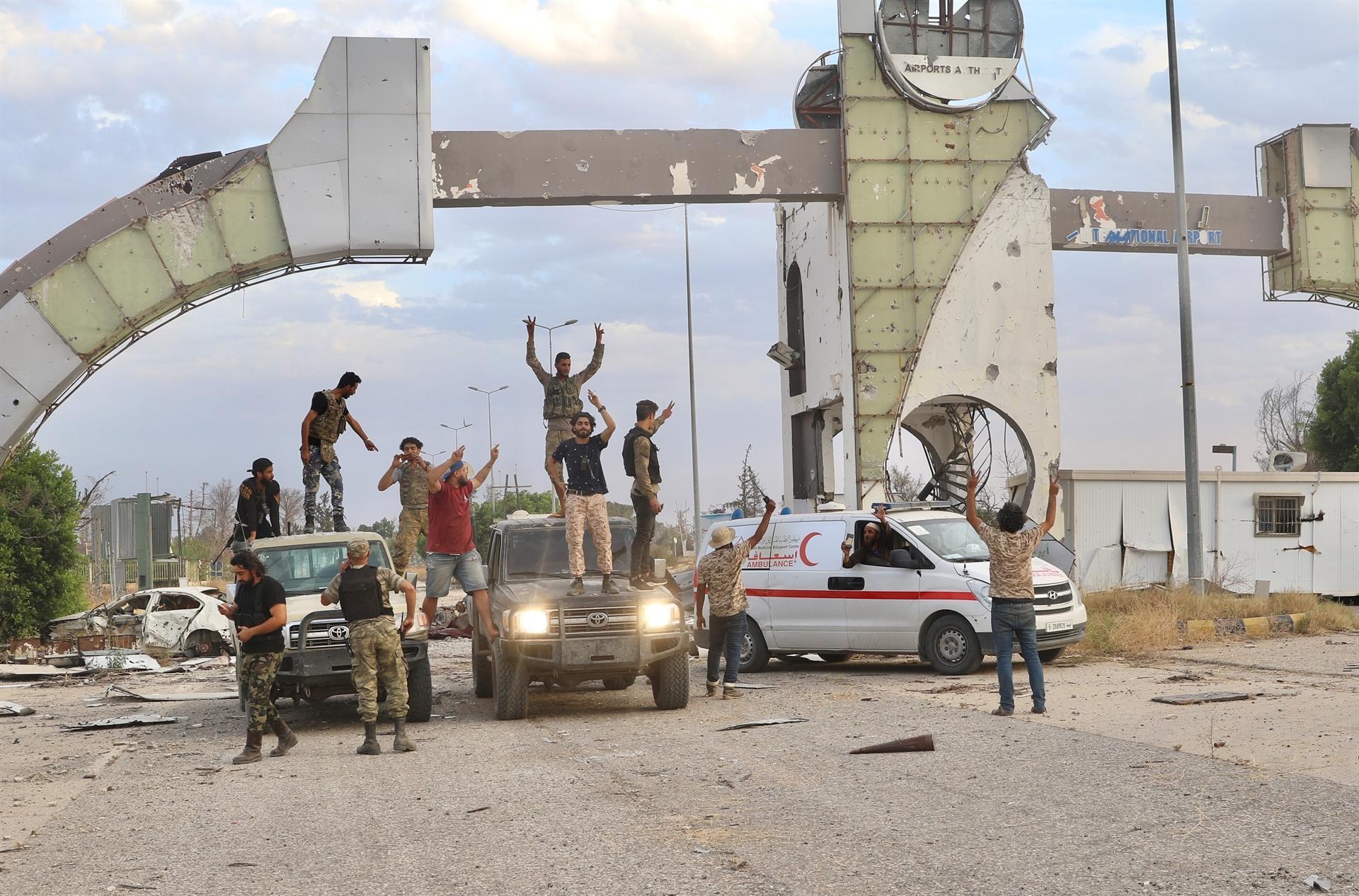
Forces fighting for Libya's internationally recognized government said on June 4 they had regained control over Tripoli and a military source with the eastern forces that have been attacking the capital said they were withdrawing.
The Government of National Accord (GNA) military operations room said in a statement it had control over all borders of the Tripoli city administrative area.
Separately, a military source in the eastern-based Libyan National Army (LNA) said it would complete its withdrawal on Thursday from the Tripoli districts of Ain Zara, Abu Salim and Qasr Ben Gashir towards a town near its stronghold of Tarhouna.
Pro-GNA forces said on June 3 that they had reseized the capital’s Tripoli International Airport, held since 2019 by rival forces backing Khalifa Haftar, in the latest in a string of defeats for the eastern-based military commander.
"Our forces have fully liberated Tripoli international airport," said Mohamad Gnounou, spokesman for forces backing the GNA.
Libya’s main civilian airport, lying on the southern edge of the capital on a key highway leading into its centre, had been closed since being heavily damaged in 2014 clashes.
Pro-Haftar forces, who launched an assault on the capital in April 2019, had captured the airport weeks later.
But their assault ground to a bloody stalemate on the edges of the city and in recent weeks, pro-GNA forces have won back a series of key locations.
Over the past two weeks, pro-GNA forces have launched major ground and air attacks, surrounding the airport area before the final assault, Gnounou said.
The operation began on June 3 morning, with drones providing air cover, Gnounou added.
Pro-GNA forces were now "chasing Haftar’s militias, who are fleeing (southwards) towards Gasr Ben Gashir" some 20 kilometres (13 miles) south of the capital, he said.
Pro-GNA TV channels and social media channels shared videos appearing to show loyalist forces entering the airport.
Haftar’s forces did not immediately comment on the setback, but the loss of the airport follows a string of defeats for Haftar in recent weeks.
The military commander, who backs a rival administration in eastern Libya and controls much of the country’s south, last month lost the key Al-Watiya airbase from which he had launched bombing runs.
Pro-GNA forces, boosted by Turkish drones and air defences, had also taken back a string of coastal towns.
The fighting for Tripoli has killed hundreds and forced around 200,000 people to flee.
Strikes have targeted civilian infrastructure and Tripoli’s only working airport, a former military base used for civilian flights since the closure of the international airport.
Haftar is supported by neighbouring Egypt and the United Arab Emirates as well as Russia.
The United Nations has urged outside powers to respect a deal reached at a January conference in Berlin, ending foreign meddling and upholding a much-violated arms embargo.
While a January truce brokered by Turkey and Russia has been repeatedly violated, the U.N. said talks on a ceasefire resumed on June 3, welcoming it as a "positive" first step.
The interim U.N. envoy, Stephanie Williams, met with a five-member delegation representing Haftar’s forces, U.N. spokesman Stephane Dujarric said, adding that a meeting with the GNA will be held within the coming days.
A military commission made up of five GNA loyalists and five Haftar delegates held talks in February, but the dialogue had been suspended.
Human Rights Watch on June 3 accused Haftar’s forces of laying Russian and Soviet landmines in residential southern suburbs of the capital.
The 2011 uprising that toppled and killed longtime dictator Muammar Gaddafi plunged Libya into years of chaos, with two rival administrations and scores of militias struggling for power.